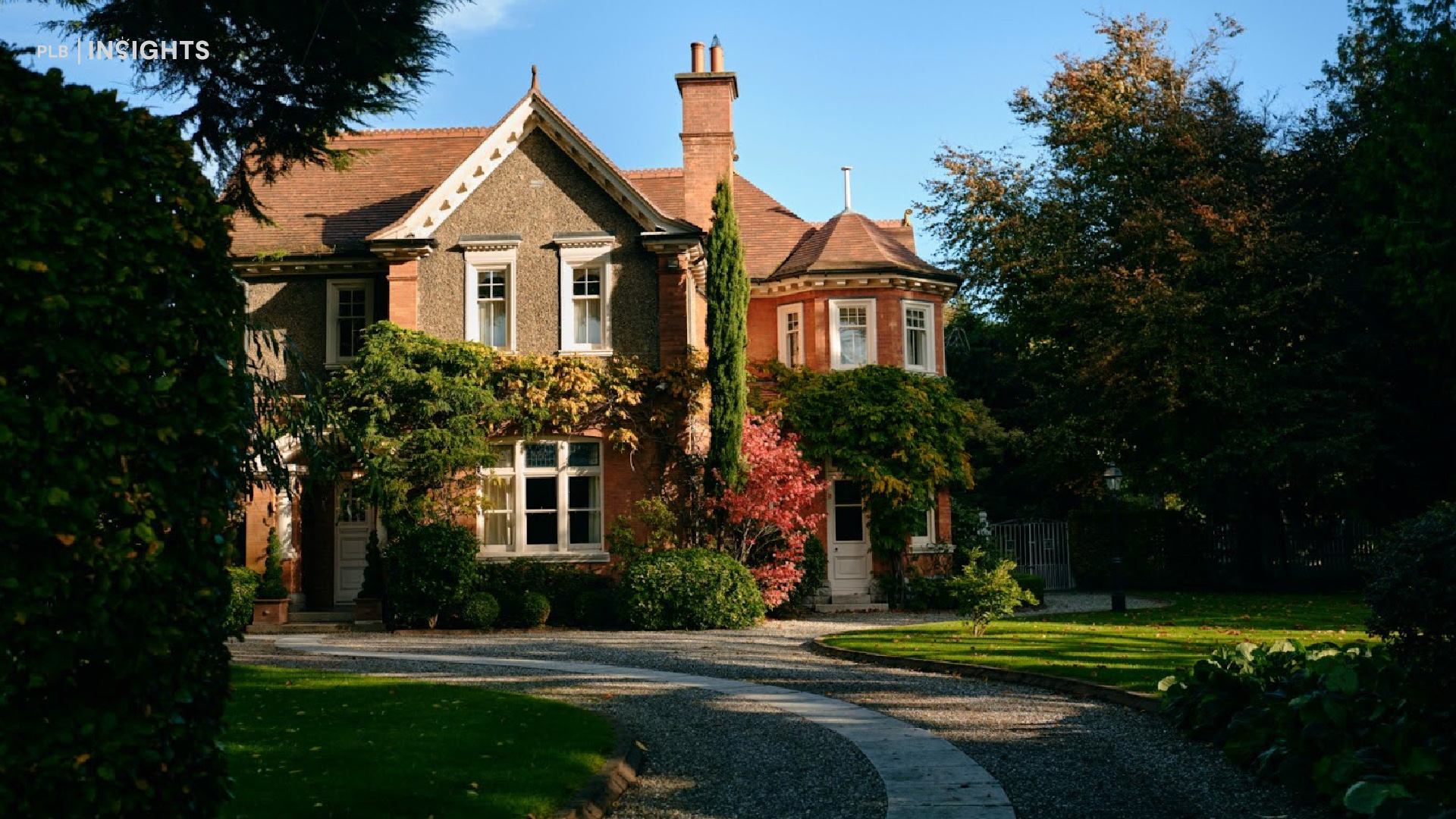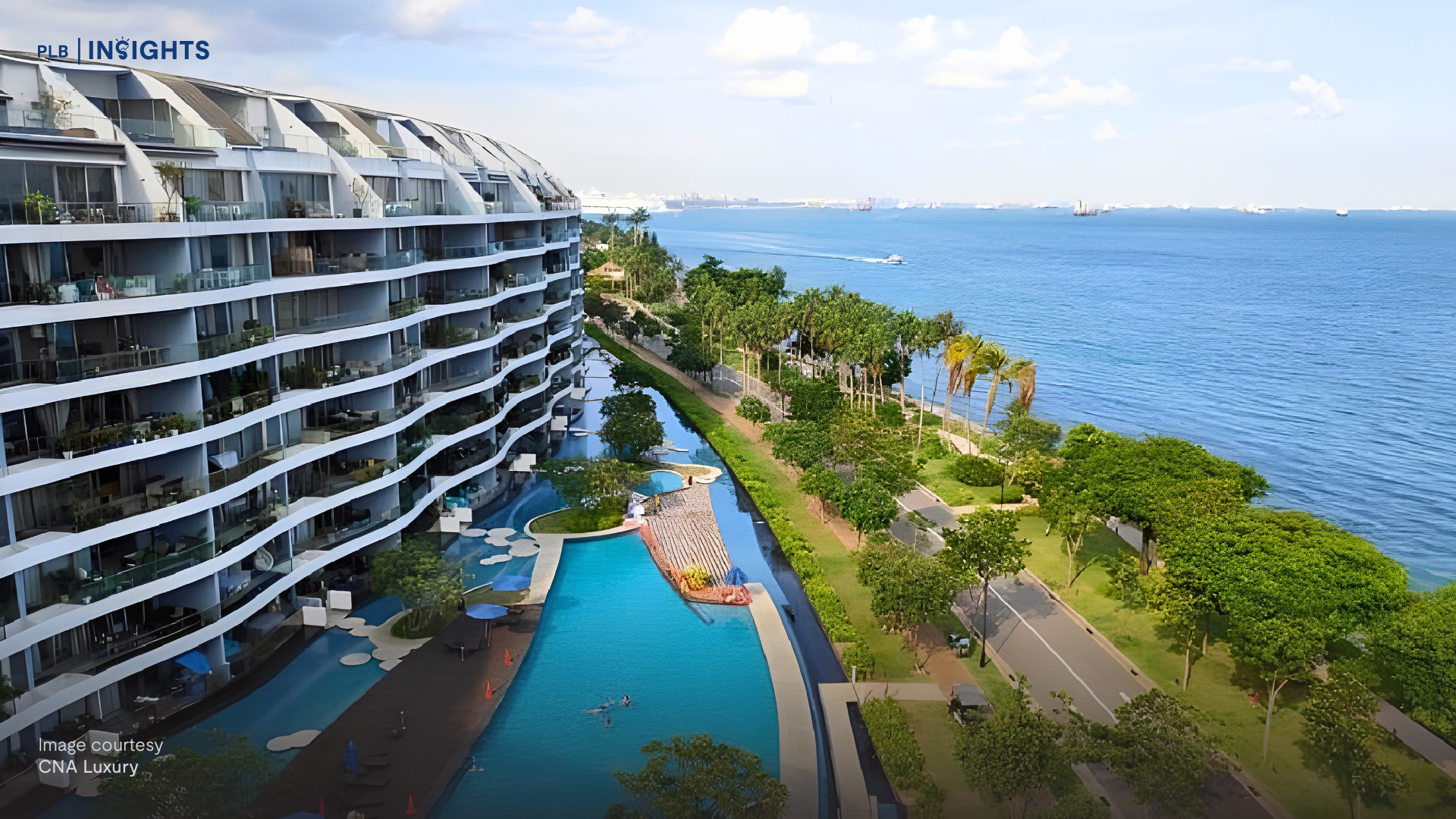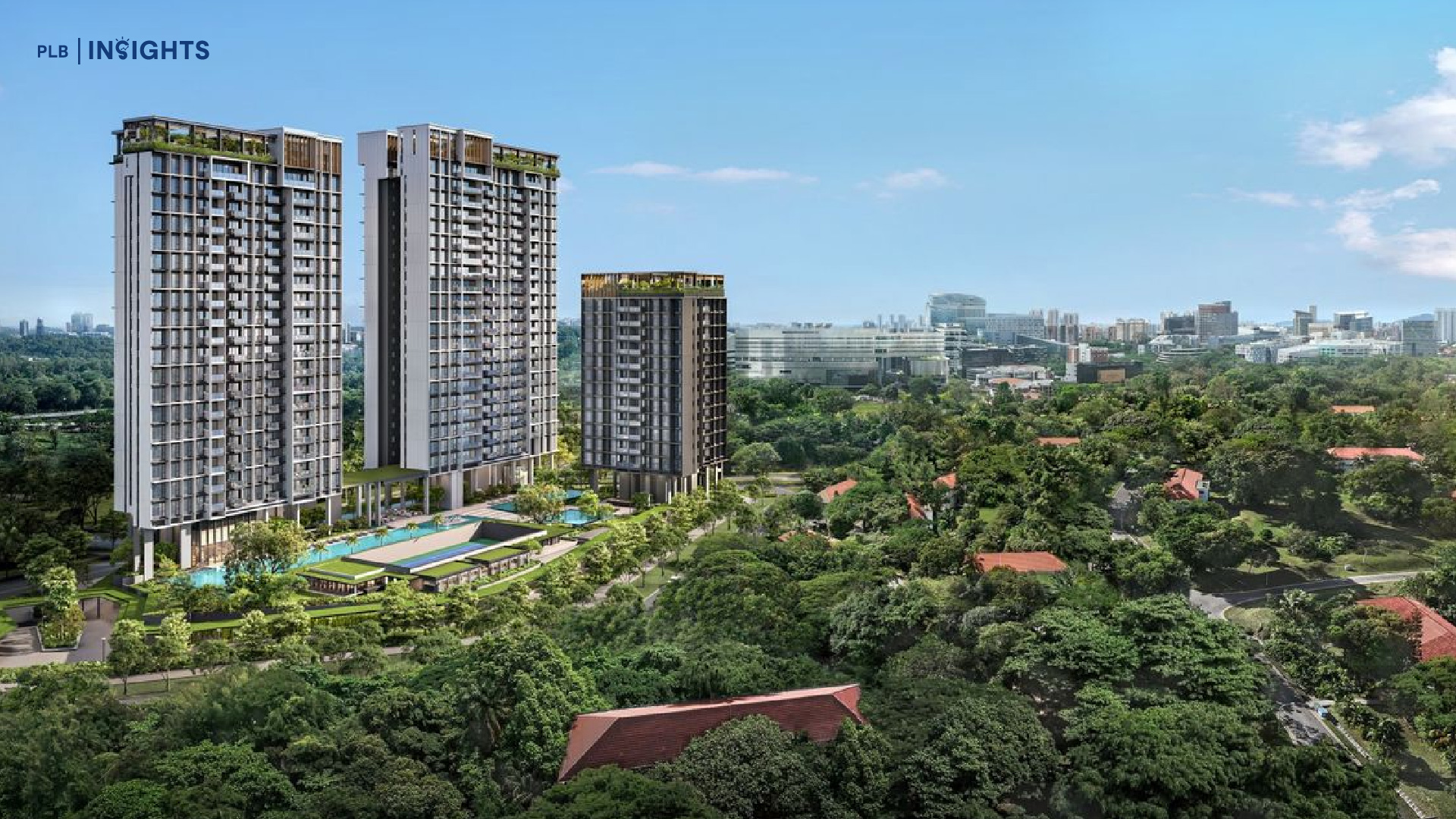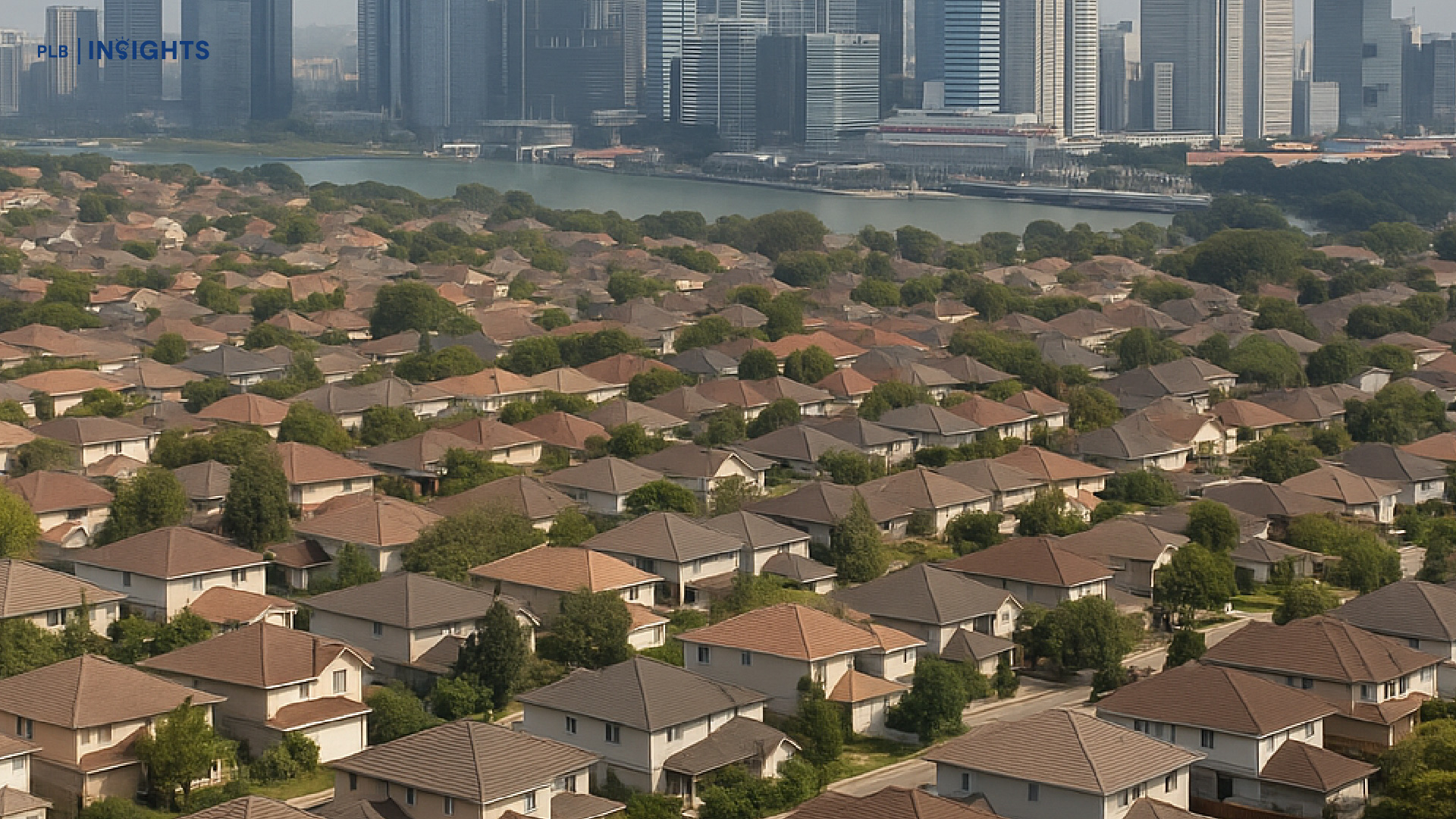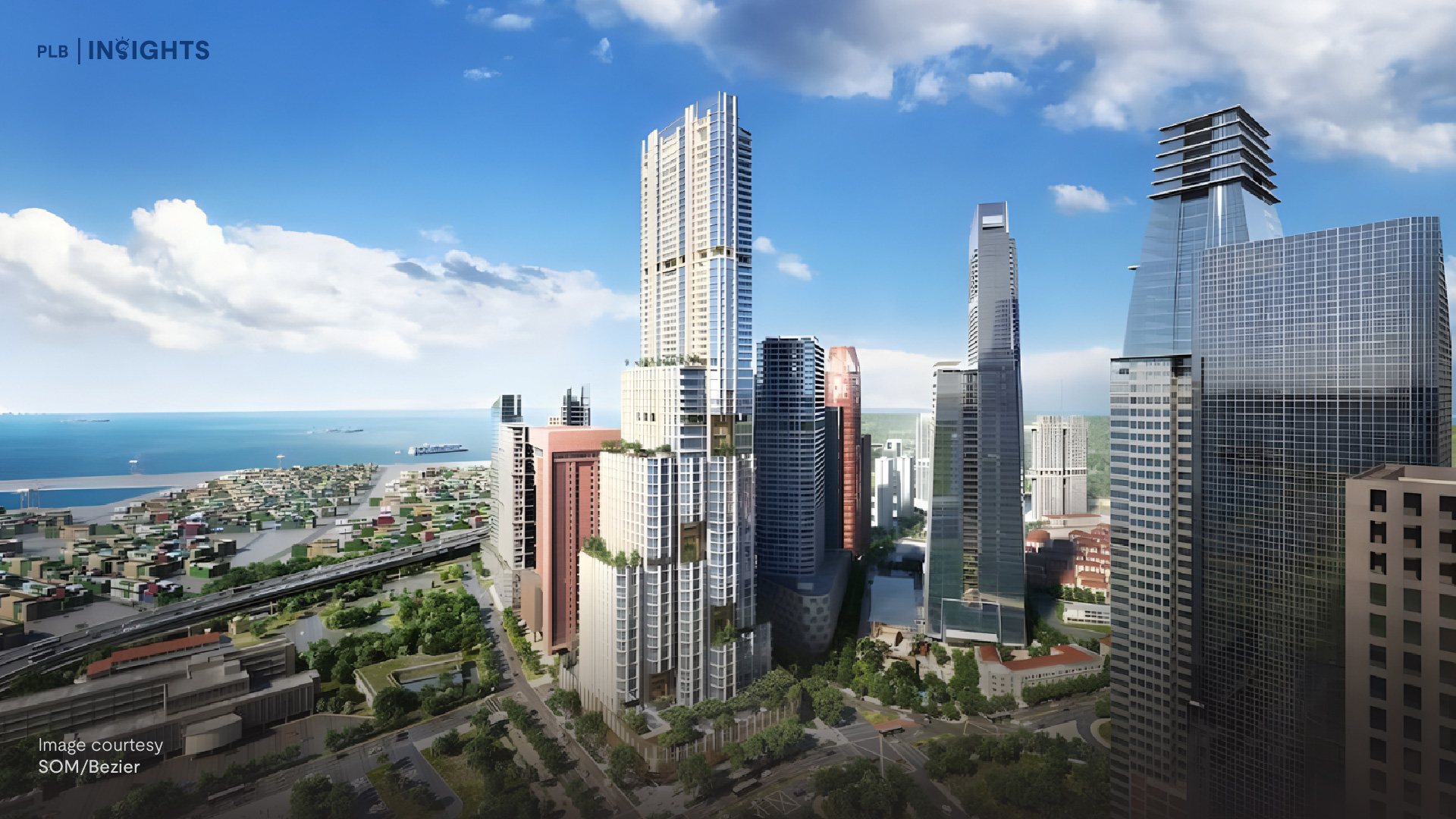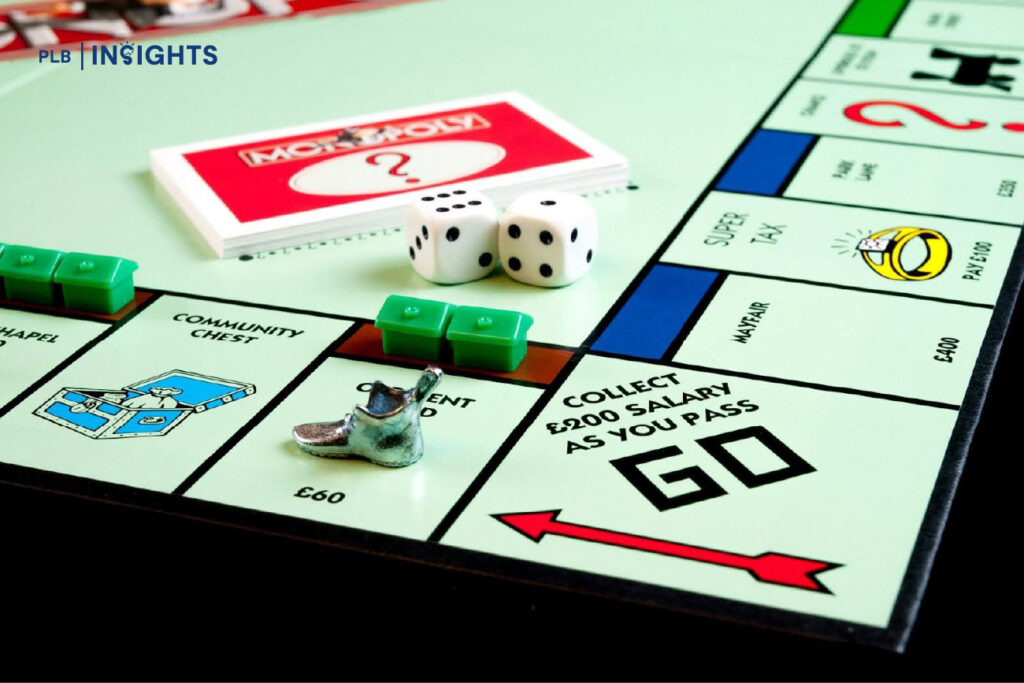
Almost every Singaporean has battled it out on a Monopoly board at some point — whether at school, during family gatherings, or on those late nights where friendships were tested and the game ended with someone storming away (or flipping the board). On the surface, Monopoly is just a game of dice, colourful notes, and tiny houses. But beneath the family drama lies a simple truth: Monopoly teaches us a lot about how to think about property, wealth, and strategy.
And here’s the kicker — the lessons aren’t just child’s play. They mirror many aspects of Singapore’s real property market. Of course, there are major differences: in Monopoly you don’t pay ABSD (Additional Buyer’s Stamp Duty), you don’t have to pass the TDSR (Total Debt Servicing Ratio), and you certainly don’t need to worry about whether the URA Master Plan rezones your neighbourhood. But at the heart of it, both games — the one with the dice and the one we live in — reward those who start early, strategise smartly, and adapt to the rules.
So let’s roll the dice and walk through the Monopoly board, Singapore-style.
Lesson 1: Buy Early or Risk Paying Rent Forever
In Monopoly, the first two rounds are critical. If you refuse to buy anything, telling yourself you’re “waiting for the right deal,” you’ll soon realise you’re constantly paying rent while others are building empires. By the time you make a move, the choicest plots are taken, and you’re stuck with the stragglers.
It’s the same in Singapore’s property market. Take the couple who waited in 2017, convinced prices would “surely dip.” Instead, prices climbed more than 30% over the next few years. Waiting became more expensive than buying.
The lesson? Don’t delay your entry point. Whether it’s an HDB flat, an executive condo, or a modest resale condo, your first purchase gets you into the game. Once you’re on the board, you’re not just paying someone else’s “rent” — you’re building your own base.
Lesson 2: Not All Properties Are Created Equal
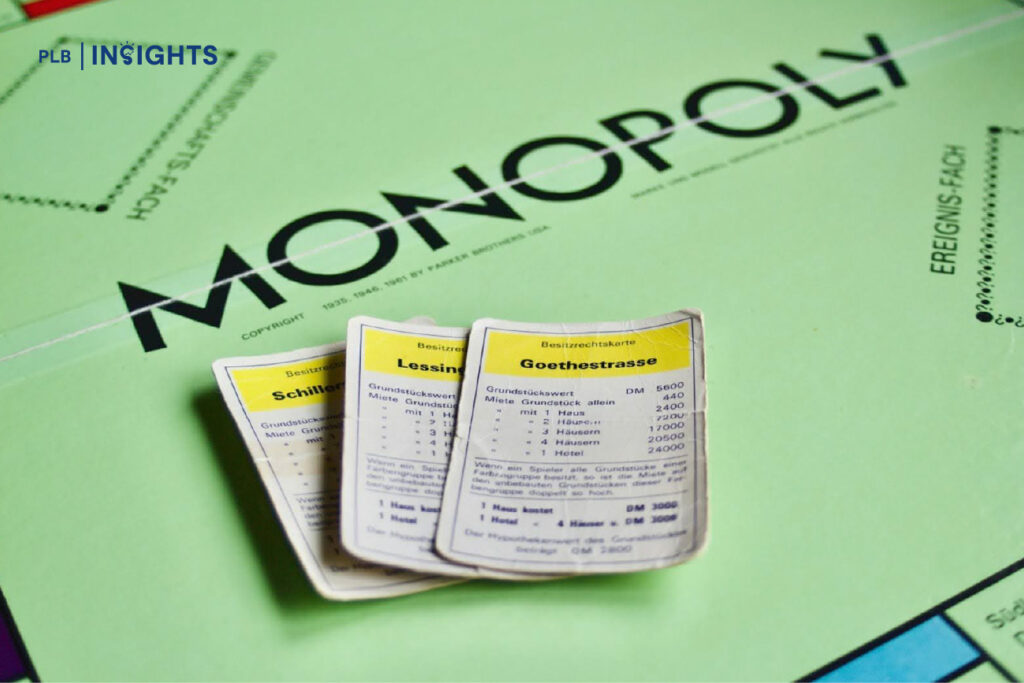
Every seasoned Monopoly player knows the trick: the Orange and Red sets are goldmines because players land on them most frequently. Sure, the Blue properties (Mayfair and Park Lane in the UK version) look glamorous, but they’re less frequently visited, making them poor cash cows in the early game.
In Singapore, it’s the same idea. Owning a swanky address in Orchard Road or Holland Village (Districts 9, 10, 11) may look impressive, but the holding costs are steep, and demand isn’t always as liquid. Contrast that with city-fringe areas like Bedok (D16), Eunos (D14), or Serangoon (D19). They may not have the prestige branding, but they offer higher transaction volumes, steady demand, and stronger liquidity — making them the equivalent of the “Orange set.”
In Monopoly and in real life, the most profitable properties aren’t always the most glamorous. They’re the ones where foot traffic (or in our case, buyer demand) is strongest.
Lesson 3: The Power of Upgrading – From Houses to Hotels
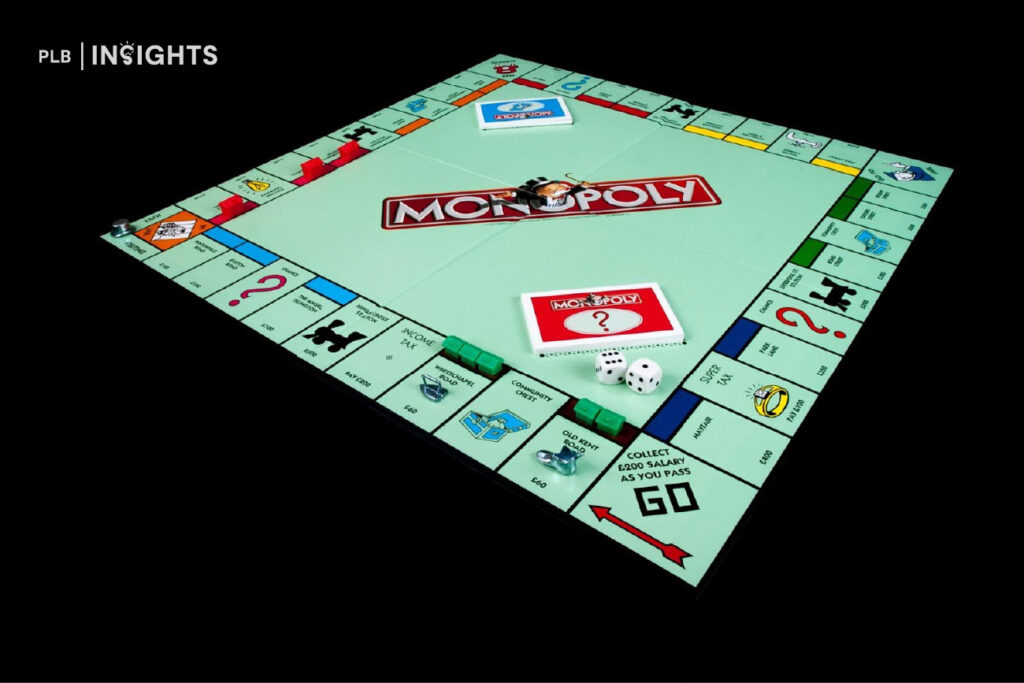
In Monopoly, you don’t just buy land and sit on it. The real money starts when you build houses and then hotels. Four little green houses may not look like much, but together they can bankrupt your opponents.
In Singapore, this translates to maximising the potential of your asset. Bought an older condo? Renovating interiors or refreshing the layout to suit modern lifestyles can enhance both livability and value. Bought a landed home? Additions & Alterations (A&A) or a full rebuild can multiply its potential.
But unlike Monopoly, you can’t build endlessly. Regulations — from plot ratio limits to building height controls — mean strategy matters. And financing rules add another twist: in Monopoly, you can plonk houses down freely; in Singapore, you must consider loan-to-value limits, construction costs, and yes, whether you can stomach the ABSD if you own more than one property.
Still, the principle holds: don’t just own — optimise.
Lesson 4: Chance and Community Chest – Expect the Unexpected
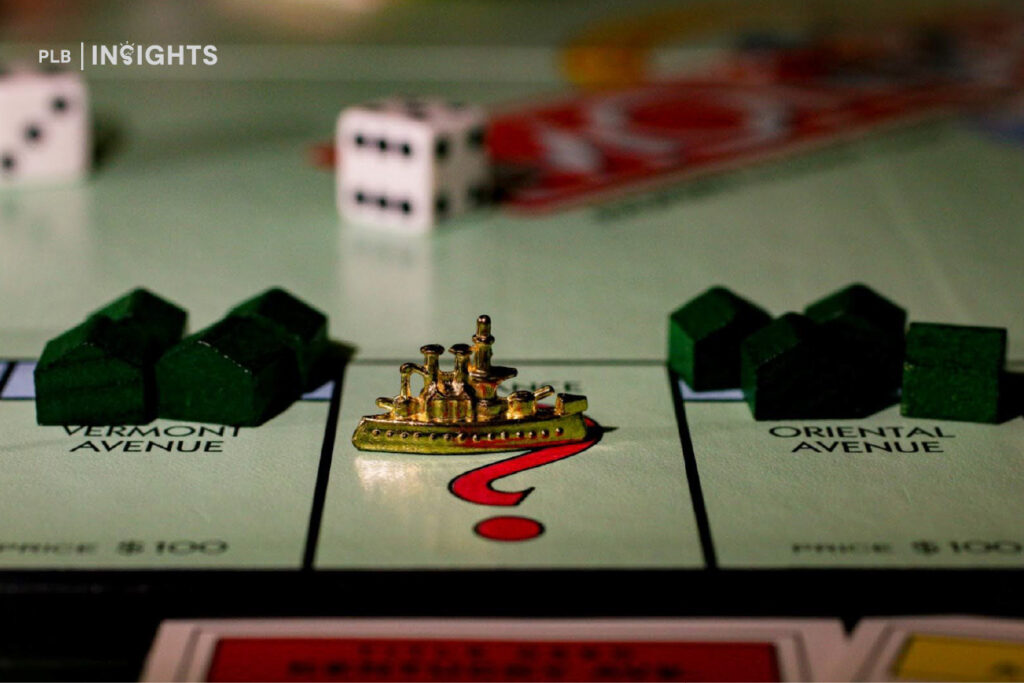
Remember the cards? Sometimes you get lucky with “Bank error in your favour.” Other times you’re slapped with “Go directly to jail.” In Monopoly, unpredictability keeps the game exciting.
In Singapore’s property market, these cards are called cooling measures. The government introduces them unexpectedly to keep the market stable: hikes in ABSD, stricter loan limits, or caps on loan tenures. Investors caught off guard can find themselves scrambling.
Take December 2021: ABSD for foreigners jumped from 20% to 30% overnight, and Singaporeans buying a second property saw their ABSD rise from 12% to 17%. Just like drawing a bad Community Chest card, these rules can derail plans — unless you’ve planned conservatively and kept a buffer.
The lesson is not to fear these curveballs, but to accept that unpredictability is part of the game. The winners are those who adapt quickly rather than freeze in shock.
Lesson 5: Cash Flow vs Capital Gains – The Rent Question
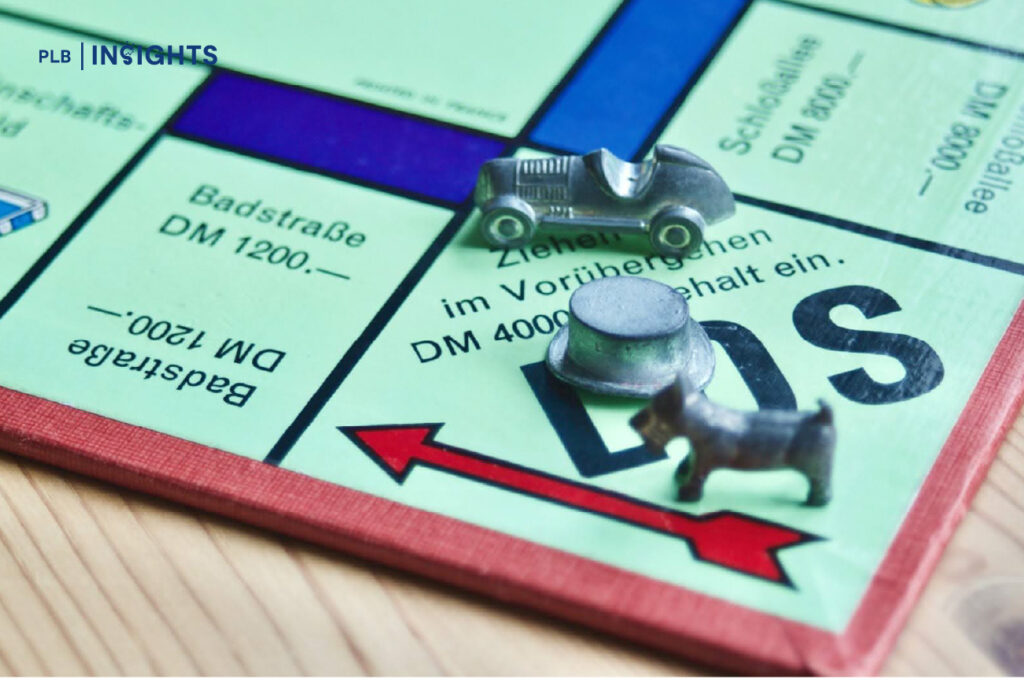
In Monopoly, newbies often obsess over the dream of owning Boardwalk with a hotel and charging $2,000 rent. Veterans, on the other hand, know that consistent rent from the Oranges is what keeps them alive and thriving.
The same goes for Singapore. Yes, capital gains are attractive — who doesn’t like selling at a tidy profit? But rental income, especially in a high-interest-rate environment, is what keeps your portfolio sustainable.
Condos near MRT lines, schools, and employment hubs may not double in price overnight, but they draw tenants easily. That rental stream helps you service your mortgage while you wait for appreciation.
In short: don’t neglect cash flow while chasing the jackpot.
Lesson 6: The Art of Trading – Knowing When to Let Go
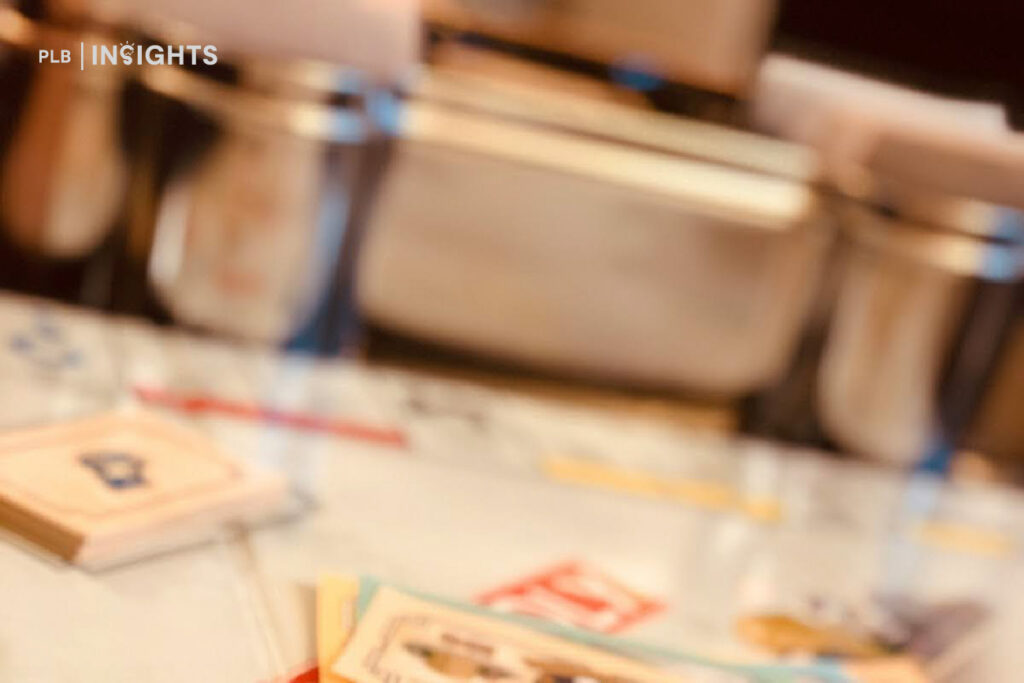
The most intense moments in Monopoly are often the trades: “I’ll give you this Light Blue if you give me that Pink.” Smart players trade strategically to complete their sets and unlock higher rents.
In Singapore, it’s called upgrading. Selling your HDB to enter the condo market. Trading a small condo for a larger one in a better district. Or cashing out of a condo to buy a landed home.
But unlike Monopoly, there’s no free barter system here — you’ve got stamp duties, legal fees, and a lengthy transaction process. That’s why timing matters. Some sell too early and miss growth. Others hold too long, only to find their property reclassified as “Category 2” (older condition) and less appealing.
The best players — in Monopoly and in life — know when to cash in and trade up.
Lesson 7: Don’t Get Bankrupted by Over-Leverage
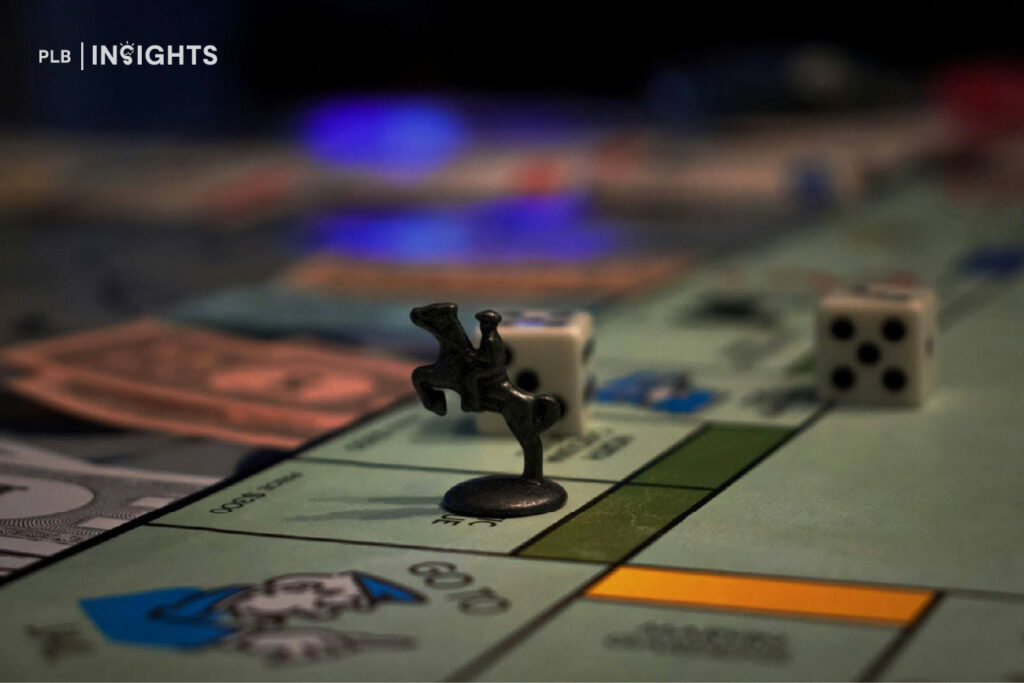
In Monopoly, if you stretch too thin, mortgage all your properties, and can’t keep up with rent, you’re doomed the next time you land on someone’s hotel.
In Singapore, over-leverage shows up in buyers who max out their loans without leaving any buffer. Interest rates rise, rental income dips, or personal circumstances change — and suddenly, monthly repayments become unsustainable.
This is precisely why the government enforces rules like the TDSR, MSR (Mortgage Servicing Ratio), and LTV (Loan-to-Value). Unlike Monopoly, where the bank lets you go wild until you collapse, Singapore’s rules force you to play within limits to prevent financial ruin. It may feel restrictive, but it’s protection in disguise.
Lesson 8: Endgame – Scarcity Always Wins
Monopoly ends when everyone else is bankrupt. Singapore’s property market doesn’t. What we do know, however, is that land here is scarce. Less than 5% of all housing stock is landed. Prime plots are finite. And population pressures mean demand will never vanish.
In Monopoly, the player with the most properties inevitably outlasts the rest because scarcity works in their favour. In Singapore, the same principle applies: those who build and hold assets within their means enjoy the long-term compounding effect of scarcity.

Conclusion: Don’t Just Play the Game — Start It
Monopoly may be a board game, but it’s also a mirror of how property works in the real world. Buy early, choose strategically, upgrade smartly, and brace for unexpected rules. Above all, understand that waiting on the sidelines is the surest way to get left behind.
Unlike Monopoly, Singapore’s property game doesn’t end when the board flips. The rules evolve, the players change, but the principles remain: those who enter the game with foresight and discipline are the ones who emerge with real, enduring wealth.
So the next time you’re about to pass “Go” in Monopoly, think of it as a reminder. In life, there’s no $200 waiting for you — but there is a property journey that rewards those who roll the dice, take the first step, and play wisely.
Monopoly may be a game, but investing in Singapore’s property market is the real deal. Ready to roll the dice wisely? Contact our sales consultants to strategise your next move with confidence.

